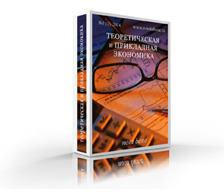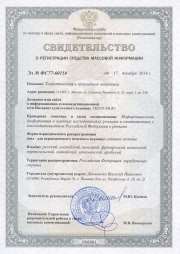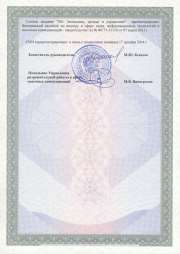MAIN PAGE
> Journal "Theoretical and Applied Economics"
> Contents of Issue № 04/2021
Contents of Issue № 04/2021
|
Suvorova A.V. - The formation of macroregions as an instrument for reducing intraterritorial disparities: experience of the Ural Federal District
|
|
pp. 1-14
|
DOI: 10.25136/2409-8647.2021.4.36766
Abstract: Economic zoning is an important instrument of regional policy; however, its impact upon solution of the territorial issues of macroregions that are built on other (noneconomic) grounds remains quite ambiguous. This research is dedicated to verification of the hypothesis on possibility of reducing the discrepancy between the parameters of territorial development as a result of their unification into a macroregion, which is formed primarily on the administrative principles. Research methodology leans on assessment of the parameter variations of interterritorial disparities in retrospect; methodological toolset includes the calculation of coefficients that characterize the degree of heterogeneity of cumulative data (coefficients of variation, asymmetry, and excess). The article uses the example of the Ural Federal District. The conducted analysis reveals that the scale of intraterritorial disparities typical for the district at the stage of its formation has not decreased over time; moreover, the difference between the parameters of the development of individual regions has increased. It is proven that the unification of territorial systems solely through administrative transformations does not mitigate the problems of excessive asymmetry of their development; and connectedness of the regions that proceeds from such transformations is often nominal. The acquired conclusions offer a critical insight into the instruments for managing socioeconomic processes in the territories of different levels, and can be taken into account in implementation of the regional policy.

|
Production branches and markets economics |
|
Safiullin M.R., Sharapov A.R., Elshin L.A. - Cluster analysis of the impact of blockchain technologies upon the development of the sectors of national economy
|
|
pp. 15-28
|
DOI: 10.25136/2409-8647.2021.4.35488
Abstract: Prospects for the development of national economy in the context of integration of blockchain technologies into the system of economic processes testify necessitate elaboration of the methods and algorithms for formalized assessment of their impact upon the key parameters of socioeconomic dynamics. If within scientific-and-expert space, one may occasionally come across the works dedicated to separate aspects of this scientific methodological problem, the questions of the impact of blockchain technologies upon individual economic sectors are yet to be explored within the information-analytical and scientific space. The methods of empirical research of the impact of blockchain technologies upon the parameters of economic development currently did not find their consolidated solution, and are of fragmentary nature. This research is an attempt to strengthen the positions of formalized approaches towards examination of the articulated scientific and practical problem. The subject of this research is the economic relations of economic agents pertaining to implementation of blockchain technologies in the economic activity and formation of the new business models. The object is the types of economic activity of the national economy of the Russian Federation and their sensitivity to the diffusion of blockchain technologies. The article offers an algorithm for studying the dynamics of gross value added of the economic sectors of the Russian Federation through the prism of possible transformation of the key parameters of functionality of the financial and real sectors of the economy as a result of diffusion of blockchain technologies. Leaning on the advanced hypotheses, the author builds co-integration models for the indicated types of economic activity, which reveal the contribution of exogenous factors that are being adjusted under the pressure of infiltration of the distributed data storage technologies into the economic environment to the degree of incremental value added. This allows conducting cluster analysis of the economic sectors under review in accordance of their sensitivity to institutional changes caused by integration of the blockchain technologies into the economic environment.

|
Service sector: management & economics |
|
Stukalova I.B. - Prospects for the development of e-commerce: opportunities and risks
|
|
pp. 29-40
|
DOI: 10.25136/2409-8647.2021.4.36909
Abstract: This article is dedicated to the development of e-commerce in the Russian Federation. The relevance of this topic is substantiated by the growth rates of this segment of commerce. The goal lies in analysis of the prospects for the development of e-commerce, taking into account the potential opportunities and challenges for the consumers, retail businesses and national economy overall. The subject of this research is the process of development of the e-commerce market. The research employs institutional approach, which implies consideration of a wide range of noneconomic factors (social, scientific-technical, technological, etc.) in the theoretical analysis of the evolution of e-commerce. The information base contains the data from the Association of E-Commerce Companies, National Association of Mail Order and Distance Selling Trade, and the works of Russian and foreign scholars. The author offers a hierarchy of concepts: e-business, e-commerce, and online trade. Tracing the history of evolution of the forms of commerce proves that e-commerce is a type of distance trading. The proposed by the author stages of development of distance trading reveals the historical peaks of its development, including separation of e-commerce. The results of analysis of e-commerce market led to the following conclusions: 1) e-commerce is one of the dynamically developing sectors of the economy, which generates new job opportunities and tax revenues; 2) the key prerequisites for the active development of e-commerce market consist in processes of digitalization and globalization of the economy; 3) the COVID-19 pandemic became a catalyst for the development of e-commerce. The development of e-commerce creates a range of opportunities and risks for all parties involved: the state, business entities, and consumers. The opportunities and risks outlined by the author may contribute to elaboration of measures aimed at utilization of opportunities and mitigation of risk caused by the development of e-commerce, which would determine its development prospects.

|
Klochko E.N., Kovalenko L.V. - Organizational-economic mechanism for managing ethnic cluster in economic space of the region
|
|
pp. 41-52
|
DOI: 10.25136/2409-8647.2021.4.36876
Abstract: At the current stage of social development, diversification of regional development is one of the central tasks for improving its socioeconomic efficiency. Therefore, it seems relevant to find “growth points” of regional development in both economic and social aspects. The ethno-economic segment plays an important role in the system of regional economy with regards to formation of strategies for optimization of the regulatory impact upon the process of regional development. The development of ethnic economy may positively affect self-organization of the regional economy, increase rationalization in the use of ethnic, natural and other resources. The research uses the example of Krasnodar Krai as a polyethnic region with ethnic resources that can be used to augment competitiveness of the region. The goal of this article is to analyze the importance of ethnic resource in the development of Krasnodar Krai as a polyethnic region, as well as work out the organizational-economic mechanism for managing ethnic cluster in order to use the recreational, natural, and cultural-historical potential of the ethnoses of Krasnodar Krai most efficiently. The scientific novelty consists in the development of organizational-economic mechanism for managing ethnic cluster in economic space of the region, which has an effective managerial impact upon the subjects of ethno-economic activity of the region. The article employs the methods of monographic analysis and systemic analysis. In the course of research, the authors determined the characteristics of ethnic cluster as an economic category; revealed that multi-sectoral orientation of functionality of ethnic cluster in Krasnodar Krai indicates the need for the development of organizational-economic management mechanism; characterized the activity of the subjects of regulation of ethnic cluster considering the management hierarchy; worked out the organizational-economic mechanism for managing ethnic cluster.

|
Gudyaeva L.A. - The assessment of the scientific and innovation potential of the Republic of Tatarstan in the global and national contexts: scientometric positioning of the region in the technological paradigms of the Industries 4.0 and 5.0
|
|
pp. 53-63
|
DOI: 10.25136/2409-8647.2021.4.36949
Abstract: One of the key priorities of the modern Russian domestic policy lies in gaining competitive advantages in solution of the tasks of global scientific and technological frontiers as the basis for sustainable economic development. Russian economy is oriented towards seeking new growth drivers through technological changes in both traditional and new technology, products and services markets. A breakthrough in the sphere of innovations is possible in the conditions if the applied science would create the system of advanced scientific-technological platform, which is human centered and more resilient for the future. Thus, in the context of drastic technological and structural shifts in the global economic system, Russia’s task of transition towards the new stage of scientific revolution acquires particular relevance. The goal of this article consists in the analysis of scientific and innovation development of the Russian Federation and its regions under the new conditions. Analysis is conducted on the fundamental trends within the framework of transition to a new technological structure, scientometric indicators worldwide, Russia and the Republic of Tatarstan in the context of the prospects for the country’s accomplishment of the new objectives of global scientific and technological agenda. The author determines the central problems in building the integral domestic innovation system in the conditions of external factors; develops the original approach towards assessment of scientific capacity of the universities and academic institutions in the technological paradigms of the Industries 4.0 and 5.0.

|
Economic theory and history of economic thought |
|
Bekulova S.R. - Social production as economic category
|
|
pp. 64-74
|
DOI: 10.25136/2409-8647.2021.4.36956
Abstract: The study of social production and the problems of improving its efficiency traditionally hold one of the central places in the economic science. This article analyzes the essence of social production, as well as offers an original definition of social production as economic category. The object of this research is a set of economic ties and processes that are generally important for business entities in the conditions of functionality of the national economy. The subject of this research is the socioeconomic relations that arise in the process of social production and reproduction. Methodological framework is comprised of the fundamentals of systemic and comparative analysis, as well as methods of synthesis, induction and deduction. The scientific novelty lies in formulation of the conceptual approach towards determining the essence of social production as economic category using interdisciplinary analysis of its content within the framework of general sociological, socio-philosophical, and political-economic approaches. The similarities and differences of interpretation of social production in cognate disciplines are established. The author determines that social production is an independent subject of science only for the political economy. The tendencies towards narrowing down, as well as broadening the scope of interpretation of social production are outlined. The reasonableness of its identification with the concepts of “material production” and “direct production” is analyzed. The author provides the original definition of “social production” as economic category.

|
El'shin L.A., Sharapov A.R., Abdukaeva A.A. - System analysis of the impact of reputation capital upon activation of economic activity in the region
|
|
pp. 75-86
|
DOI: 10.25136/2409-8647.2021.4.36038
Abstract: The search for the factors that launch the mechanisms of economic dynamics remain polemical and generate contradictions between various economic schools and directions. This is caused by the differences in fundamental approaches, as well as by conjunctural transformations that initiate new forms and instruments for activation of economic growth in modern reality. The debates and works dedicated to the contribution of nonmaterial factors to the dynamics of the key macroeconomic indicators of regional systems are particularly acute. In this regard, it is an essential methodological aspect in studying the regional development is the application of approaches that are based on the principles of reputation economics, which covers the reproduction processes through the prism of reputation capital. Considering the relevance of this problem, the author carries out comprehensive analysis of the impact of the reputation capital of the region (classified as intangible assets) upon the growth of business activity of the economic agents. Leaning on the methods of building the system of recursive equations, the key patterns of the impact of reputation upon activation of economic activity in the region are determined. Substantiation is given to the main vectors of implementation of government regional policy through the prism of the theory of reputation economy. The article offers an interpretation, which discloses the priorities and peculiarities of regional development in the era of the Fourth Industrial Revolution, as well as the specific features of strategic territorial management.

|
Economic theory and history of economic thought |
|
Chuchkalova I.Y., Orekhova S.V. - Technological Sector of the Economy: Problems of Identification
|
|
pp. 87-104
|
DOI: 10.25136/2409-8647.2021.4.36682
Abstract: Technological development overall and support for high-tech areas of business one of the key segments of state policy of most of the world’s countries. At the same time, there is no uniform approach towards terminology and concept of the high-tech sector of the economy. The subject of this research is determination of the criteria that allow identifying the technological level of companies. The article employs the methods of content and bibliometric analysis, systematization and classification. Analysis is conducted on interpretation of the concepts of “technology” and “technology sector”, which reveals several approaches towards comprehension of the essence of these categories: instrumental, knowledge-based, performance, and business model. The conducted bibliometric analysis of the number of publications in leading Russian and international databases on the topics of “technology sector”, “technology companies”, “high-tech business”, “high-tech companies” and “information sector” indicates heightened interest in this topic. Examination of the experience of various countries, significant differences in identification of the technology sector are established. The author clarifies the direct and indirect criteria for classification of the companies as high-tech. Direct criteria included the use of high technologies in manufacturing and the production of high-tech products. The group of indirect criteria includes the intensity of costs for research and development, scientific content of products and production, involvement of highly competent personnel in business processes, and a short life cycle of the products.

|
Burganov R.T., Gafarov M.R., Elshin L.A., Savushkin M.V., Artem'ev A.V. - Empirical assessment of the impact of digital transformation upon development of inclusive model of economic growth of the region
|
|
pp. 105-118
|
DOI: 10.25136/2409-8647.2021.4.36716
Abstract: The subject of this research is the economic relations concerning the development of the model of inclusive development of the region based on transformations implemented in the field of digitalization of economic relations. The object of this research is the regions of the Volga Federal District. The authors dwell on the aspects and peculiarities of formalized assessment of the inclusive model of economic growth in the regions, taking into consideration the built integral indexes of digitalization of their socioeconomic systems, as well as aim to build integral indexes that characterize the key vectors and development trends of the analyzed categories with subsequent construction of models that assess the degree of their interrelation. Special attention is given to questions of comparative analysis of the regions of the Volga Federal District in accordance with the determined parameters and peculiarities of the developed model of inclusive economic growth. The main conclusions lie in the provisions, according to which regions with the higher level of inclusive development demonstrate better indicators of socioeconomic development. The authors’ special contribution consists in the construction of time series that assess the quantitative and qualitative parameters of digital transformation of the regions and the degree of development of their models of inclusive growth, which allows acquiring new results that would reveal the peculiarities and prospects of regional development in the new economic conditions. The author not only determined the degree of impact of digital transformation processes upon the prospects for the transition of the regional socioeconomic systems to a new, inclusive type of development, but also to formed the basis for further expansion of the approaches used in economic theory for studying the economic dynamics.

|






